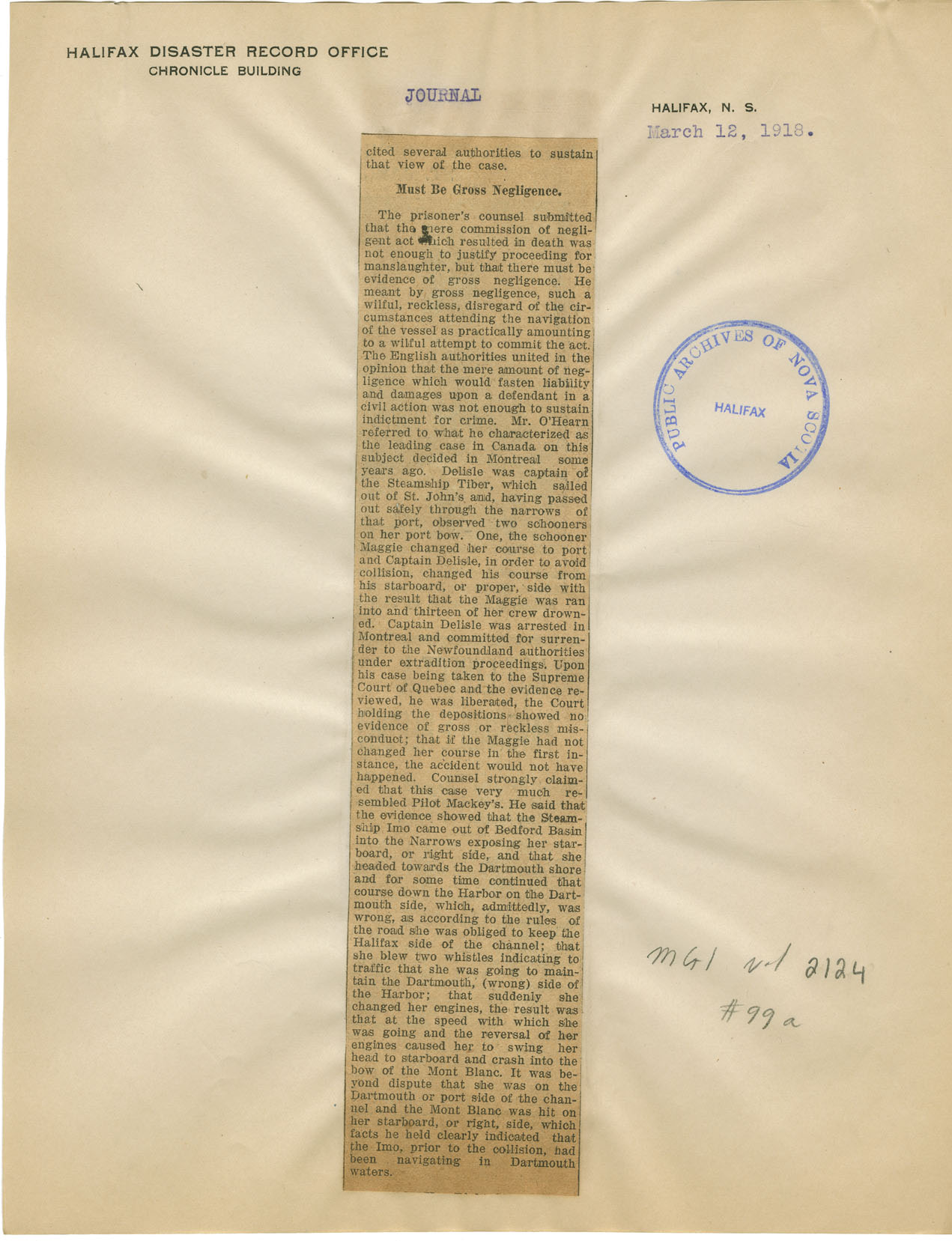Nova Scotia Archives
Archibald MacMechan
Halifax Disaster Record Office Materials
"Journal", clipping
12 March 1918. — 3 pages : 30 x 40 cm.
note: transcription publicly contributed - please contact us with comments, errors or omisions
MG 1 vol 2124 number 99a
HALIFAX DISASTER RECORD OFFICE
CHRONICLE BUILDING
JOURNAL
HALIFAX, N.S.
March 12, 1918
cited several authorities to sustain that view of the case.
Must Be Gross Negligence.
The prisoner's counsel submitted that the mere commission of negligent act which resulted in death was not enough to justify proceeding for manslaughter, but that there must be evidence of gross negligence. He meant by gross negligence, such a wilful, reckless, disregard or the circumstances attending the navigation of the vessel as practically amounting to a wilful attempt to commit the act.
The English authorities united in the opinion that the mere amount of negligence which would fasten liability and damages upon a defendant in a civil action was not enough to sustain indictment for crime. Mr. O'Hearn referred to what he characterized as the leading case in Canada on this subject decided in Montreal some years ago. Delisle was captain of the Steamship Tiber, which sailed out of St. John's and, having passed out safely through the narrows of that port, observed two schooners on her port bow. One, the schooner Maggie changed her course to port and captain Delisle, in order to avoid collision, changed his course from his starboard, or proper, side with the result that the Maggie was ran into and thirteen of her crew drowned. Captain Delisle was arrested in Montreal and committed for surrender to the Newfoundland authorities under extradition proceedings. Upon his case being taken to Supreme Court of Quebec and the evidence reviewed, he was liberated, the Court holding the depositions showed no evidence of gross or reckless misconduct; that if the Maggie had not changed her course in the first instance, the accident would not have happened. Counsel strongly claimed that this case very much resembled Pilot Mackey's. He said that the evidence showed that the Steamship Imo came out of Bedford Basin in the Narrows exposing her starboard or right side, and that she headed towards the Dartmouth shore and for some time continued that course down the Harbor on the Dartmouth side, which, admittedly, was wrong, as according to the rules of the road she was obliged to keep the Halifax side of the channel; that she blew two whistles indicating to traffic that she was going to maintain the Dartmouth, {wrong} side of the Harbor; that suddenly she changed her engines, the result was that at the speed with which she was going and the reversal of her engines caused her to swing her head to starboard and crash into the bow of the Mont Blanc. It was beyond dispute that she was on the Dartmouth or port side of the channel and the Mont Blanc was hit on her starboard, or right, side, which facts he held clearly indicated that the Imo, prior to the collision, had been navigating in Dartmouth waters.
Reference: Archibald MacMechan Nova Scotia Archives MG 1 volume 2124 number 99

